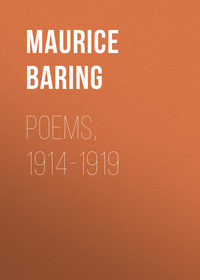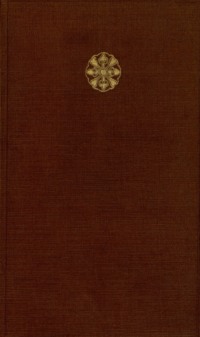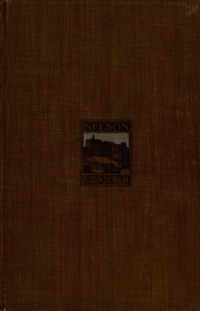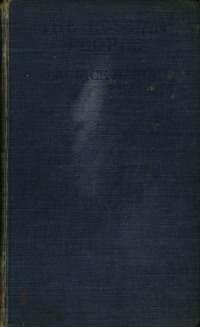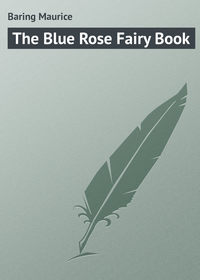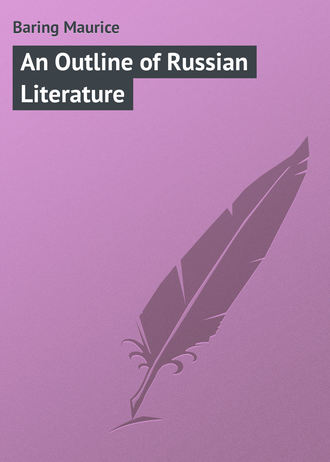 полная версия
полная версияAn Outline of Russian Literature
Zhukovsky’s greatest service to Russian literature consisted in his exploding the superstition that the literature of France was the only literature that counted, and introducing literary Russia to the poets of England and Germany rather than of France. But apart from this, he is the first and best translator in European literature, for what Krylov did with some of La Fontaine’s fables, he did for all the literature he touched – he re-created it in Russian, and made it his own. In his translation of Gray’s Elegy, for instance, he not only translates the poet’s meaning into musical verse, but he conveys the intangible atmosphere of dreamy landscape, and the poignant accent which makes that poem the natural language of grief. It is characteristic of him that, thirty-seven years after he translated the poem, he visited Stoke Poges, re-read Gray’s Elegy there, and made another translation, which is still more faithful than the first.
The Russian language was by this time purified from all outward excrescences, released from the bondage of convention and the pseudo-classical, open to all outside influences, and only waiting, like a ready-tuned instrument, on which Krylov and Zhukovsky had already sounded sweet notes and deep tones, and which Karamzin had proved to be a magnificent vehicle for musical and perspicuous prose, for a poet of genius to come and sound it from its lowest note to the top of its compass, for there was indeed much music and excellent voice to be plucked from it. At the appointed hour the man came. It was Pushkin. He arrived at a time when a battle of words was raging between the so-called classical and romantic schools. The pseudo-classical, with all its mythological machinery and conventional apparatus, was totally alien to Russia, and a direct and slavish imitation of the French. On the other hand, the utmost confusion reigned as to what constituted romanticism. To each single writer it meant a different thing: “Enfonçez Racine,” and the unities, in one case; or ghosts, ballads, legends, local colour in another; or the defiance of morality and society in another. Zhukovsky, in introducing German romanticism into Russia, paved the way for its death, and for the death of all exotic fashions and models; for he paved the way for Pushkin to render the whole quarrel obsolete by creating models of his own and by founding a national literature.
Pushkin was born on May 26, 1799, at Moscow. He was of ancient lineage, and inherited African negro blood on his mother’s side, his mother’s grandmother being the daughter of Peter the Great’s negro, Hannibal. Until he was nine years old, he did not show signs of any unusual precocity; but from then onwards he was seized with a passion for reading which lasted all his life. He read Plutarch’s Lives, the Iliad and the Odyssey in a translation. He then devoured all the French books he found in his father’s library. Pushkin was gifted with a photographic memory, which retained what he read immediately and permanently. His first efforts at writing were in French, – comedies, which he performed himself to an audience of his sisters. He went to school in 1812 at the Lyceum of Tsarskoe Selo, a suburb of St. Petersburg. His school career was not brilliant, and his leaving certificate qualifies his achievements as mediocre, even in Russian. But during the six years he spent at the Lyceum, he continued to read voraciously. His favourite poet at this time was Voltaire. He began to write verse, first in French and then in Russian; some of it was printed in 1814 and 1815 in reviews, and in 1815 he declaimed his Recollections of Tsarskoe Selo in public at the Lyceum examination, in the presence of Derzhavin the poet.
The poems which he wrote at school afterwards formed part of his collected works. In these poems, consisting for the greater part of anacreontics and epistles, although they are immature, and imitative, partly of contemporary authors such as Derzhavin and Zhukovsky, and partly of the French anacreontic school of poets, such as Voltaire, Gresset and Parny, the sound of a new voice was unmistakable. Indeed, not only his contemporaries, but the foremost representatives of the Russian literature of that day, Derzhavin, Karamzin and Zhukovsky, made no mistake about it. They greeted the first notes of this new lyre with enthusiasm. Zhukovsky used to visit the boy poet at school and read out his verse to him. Derzhavin was enthusiastic over the recitation of his Recollections of Tsarskoe Selo. Thus fame came to Pushkin as easily as the gift of writing verse. He had lisped in numbers, and as soon as he began to speak in them, his contemporaries immediately recognized and hailed the new voice. He did not wake up and find himself famous like Byron, but he walked into the Hall of Fame as naturally as a young heir steps into his lawful inheritance. If we compare Pushkin’s school-boy poetry with Byron’s Hours of Idleness, it is easy to understand how this came about. In the Hours of Idleness there is, perhaps, only one poem which would hold out hopes of serious promise; and the most discerning critics would have been justified in being careful before venturing to stake any great hopes on so slender a hint. But in Pushkin’s early verse, although the subject-matter is borrowed, and the style is still irregular and careless, it is none the less obvious that it flows from the pen of the author without effort or strain; and besides this, certain coins of genuine poetry ring out, bearing the image and superscription of a new mint, the mint of Pushkin.
When the first of his poems to attract the attention of a larger audience, Ruslan and Ludmila, was published, in 1820, it was greeted with enthusiasm by the public; but it had already won the suffrages of that circle which counted most, that is to say, the leading men of letters of the day, who had heard it read out in MSS. For as soon as Pushkin left school and stepped into the world, he was received into the literary circle of the day on equal terms. After he had read aloud the first cantos of Ruslan and Ludmila at Zhukovsky’s literary evenings, Zhukovsky gave him his portrait with this inscription: “To the pupil, from his defeated master”; and Batyushkov, a poet who, after having been influenced, like Pushkin, by Voltaire and Parny, had gone back to the classics, Horace and Tibullus, and had introduced the classic anacreontic school of poetry into Russia, was astonished to find a young man of the world outplaying him without any trouble on the same lyre, and exclaimed, “Oh! how well the rascal has started writing!”
The publication of Ruslan and Ludmila sealed Pushkin’s reputation definitely, as far as the general public was concerned, although some of the professional critics treated the poem with severity. The subject of the poem was a Russian fairy-tale, and the critics blamed the poet for having recourse to what they called Russian folk-lore, which they considered to be unworthy of the poetic muse. One review complained that Pushkin’s choice of subject was like introducing a bearded unkempt peasant into a drawing-room, while others blamed him for dealing with national stuff in a flippant spirit. But the curious thing is that, while the critics blamed him for his choice of subject, and his friends and the public defended him for it, quoting all sorts of precedents, the poem has absolutely nothing in common, either in its spirit, style or characterization, with native Russian folk-lore and fairy-tales. Much later on in his career, Pushkin was to show what he could do with Russian folk-lore. But Ruslan and Ludmila, which, as far as its form is concerned, has a certain superficial resemblance to Ariosto, is in reality the result of the French influence, under which Pushkin had been ever since his cradle, and which in this poem blazes into the sky like a rocket, and bursts into a shower of sparks, never to return again.
There is no passion in the poem and no irony, but it is young, fresh, full of sensuous, not to say sensual images, interruptions, digressions, and flippant epigrams. Pushkin wondered afterwards that nobody noticed the coldness of the poem; the truth was that the eyes of the public were dazzled by the fresh sensuous images, and their ears were taken captive by the new voice: for the importance of the poem lies in this – that the new voice which the literary pundits had already recognized in the Lyceum of Tsarskoe Selo was now speaking to the whole world, and all Russia became aware that a young man was among them “with mouth of gold and morning in his eyes.” Ruslan and Ludmila has just the same sensuous richness, fresh music and fundamental coldness as Marlowe’s Hero and Leander. After finishing the poem, Pushkin added a magnificent and moving Epilogue, written from the Caucasus in the year of its publication (1820); and when the second edition was published in 1828, he added a Prologue in his finest manner which tells of Russian fairy-land.
After leaving school in 1817, until 1820, Pushkin plunged into the gay life of St. Petersburg. He wanted to be a Hussar, but his father could not afford it. In default he became a Foreign Office official; but he did not take this profession seriously. He consorted with the political youth and young Liberals of the day; he scattered stinging epigrams and satirical epistles broadcast. He sympathized with the Decembrists, but took no part in their conspiracy. He would probably have ended by doing so; but, luckily for Russian literature, he was transferred in 1820 from the Foreign Office to the Chancery of General Inzov in the South of Russia; and from 1820 to 1826 he lived first at Kishinev, then at Odessa, and finally in his own home at Pskov. This enforced banishment was of the greatest possible service to the poet; it took him away from the whirl and distractions of St. Petersburg; it prevented him from being compromised in the drama of the Decembrists; it ripened and matured his poetical genius; it provided him, since it was now that he visited the Caucasus and the Crimea for the first time, with new subject-matter.
During this period he learnt Italian and English, and came under the influence of André Chénier and Byron. André Chénier’s influence is strongly felt in a series of lyrics in imitation of the classics; but these lyrics were altogether different from the anacreontics of his boyhood. Byron’s influence is first manifested in a long poem The Prisoner of the Caucasus. It is Byronic in the temperament of the hero, who talks in the strain of the earlier Childe Harold; he is young, but feels old; tired of life, he seeks for consolation in the loneliness of nature in the Caucasus. He is taken prisoner by mountain tribesmen, and set free by a girl who drowns herself on account of her unrequited love. Pushkin said later that the poem was immature, but that there were verses in it that came from his heart. There is one element in the poem which is by no means immature, and that is the picture of the Caucasus, which is executed with much reality and simplicity. Pushkin annexed the Caucasus to Russian poetry. The Crimea inspired him with another tale, also Byronic in some respects, The Fountain of Baghchi-Sarai, which tells of a Tartar Khan and his Christian slave, who is murdered out of jealousy by a former favourite, herself drowned by the orders of the Khan. Here again the descriptions are amazing, and Pushkin draws out a new stop of rich and voluptuous music.
In speaking of the influence of Byron over Pushkin it is necessary to discriminate. Byron helped Pushkin to discover himself; Byron revealed to him his own powers, showed him the way out of the French garden where he had been dwelling, and acted as a guide to fresh woods and pastures new. But what Pushkin took from the new provinces to which the example of Byron led him was entirely different from what Byron sought there. Again, the methods and workmanship of the two poets were radically different. Pushkin is never imitative of Byron; but Byron opened his eyes to a new world, and indeed did for him what Chapman’s Homer did for Keats. It frequently happens that when a poet is deeply struck by the work of another poet he feels a desire to write something himself, but something different. Thus Pushkin’s mental intercourse with Byron had the effect of bracing the talent of the Russian poet and spurring him on to the conquest of new worlds.
Pushkin’s six years’ banishment to his own country had the effect of revealing to him the reality and seriousness of his vocation as a poet, and the range and strength of his gifts. It was during this period that besides the works already mentioned he wrote some of his finest lyrics, The Conversation between the Bookseller and the Poet– perhaps the most perfect of his shorter poems – it contains four lines to have written which Turgenev said he would have burnt the whole of his works – a larger poem called The Gypsies; his dramatic chronicle Boris Godunov, and the beginning of his masterpiece Onegin; several ballads, including The Sage Oleg, and an unfinished romance, the Robber Brothers.
Not only is the richness of his output during this period remarkable, but the variety and the high level of art maintained in all the different styles which he attempted and mastered. The Gypsies (1827), which was received with greater favour by the public than any of his poems, either earlier or later, is the story of a disappointed man, Aleko, who leaves the world and takes refuge with gypsies. A tragically ironical situation is the result. The anarchic nature of the Byronic misanthrope brings tragedy into the peaceful life of the people, who are lawless because they need no laws. Aleko loves and marries the gypsy Zemfira, but after a time she tires of him, and loves a young gypsy. Aleko surprises them and kills them both. Then Zemfira’s father banishes him from the gypsies’ camp. He, too, had been deceived. When his wife Mariula had been untrue and had left him, he had attempted no vengeance, but had brought up her daughter.
“Leave us, proud man,” he says to Aleko. “We are a wild people; we have no laws, we torture not, neither do we punish; we have no use for blood or groans; we will not live with a man of blood. Thou wast not made for the wild life. For thyself alone thou claimest licence; we are shy and good-natured; thou art evil-minded and presumptuous. Farewell, and peace be with thee!”
The charm of the poem lies in the descriptions of the gypsy camp and the gypsy life, the snatches of gypsy song, and the characterization of the gypsies, especially of the women. It is not surprising the poem was popular; it breathes a spell, and the reading of it conjures up before one the wandering life, the camp-fire, the soft speech and the song; and makes one long to go off with “the raggle-taggle gypsies O!”
Byron’s influence soon gave way to that of Shakespeare, who opened a still larger field of vision to the Russian poet. In 1825 he writes: “Quel homme que ce Shakespeare! Je n’en reviens pas. Comme Byron le tragique est mesquin devant lui! Ce Byron qui n’a jamais conçu qu’un seul caractère et c’est le sien … ce Byron donc a partagé entre ses personages tel et tel trait de son caractère: son orgeuil à l’un, sa haine à l’autre, sa mélancolie au troisième, etc., et c’est ainsi d’un caractère plein, sombre et énergique, il a fait plusieurs caractères insignifiants; ce n’est pas là de la tragédie. On a encore une manie. Quand on a conçu un caractère, tout ce qu’on lui fait dire, même les choses les plus étranges, en porte essentiellement l’empreinte, comme les pédants et les marins dans les vieux romans de Fielding. Voyez le haineux de Byron … et là-dessus lisez Shakespeare. Il ne craint jamais de compromettre son personage, il le fait parler avec tout l’abandon de la vie, car il est sûr en temps et lieu, de lui faire trouver le langage de son caractère. Vous me demanderez: votre tragédie est-elle une tragédie de caractère ou de costume? J’ai choisi le genre le plus aisé, mais j’ai tâché de les unir tous deux. J’écris et je pense. La plupart des scènes ne demandent que du raisonnement; quand j’arrive à une scène qui demande de l’inspiration, j’attends ou je passe dessus.”
I quote this letter because it throws light, firstly, on Pushkin’s matured opinion of Byron, and, secondly, on his methods of work; for, like Leonardo da Vinci, he formed the habit, which he here describes, of leaving unwritten passages where inspiration was needed, until he felt the moment of bien être when inspiration came; and this not only in writing his tragedy, but henceforward in everything that he wrote, as his note-books testify.
The subject-matter of Boris Godunov was based on Karamzin’s history: it deals with the dramatic episode of the Russian Perkin Warbeck, the false Demetrius who pretended to be the murdered son of Ivan the Terrible. The play is constructed on the model of Shakespeare’s chronicle plays, but in a still more disjointed fashion, without a definite beginning or end: when Mussorgsky made an opera out of it, the action was concentrated into definite acts; for, as it stands, it is not a play, but a series of scenes. Pushkin had not the power of conceiving and executing a drama which should move round one idea to an inevitable close. He had not the gift of dramatic architectonics, and still less that of stage carpentry. On the other hand, the scenes, whether they be tragic and poetical, or scenes of common life, are as vivid as any in Shakespeare; the characters are all alive, and they speak a language which is at the same time ancient, living, and convincing.
In saying that Pushkin lacks the gift of stage architectonics and stage carpentry, it is not merely meant that he lacked the gift of arranging acts that would suit the stage, or that of imagining stage effects. His whole play is not conceived as a drama; a subject from which a drama might be written is taken, but the drama is left unwritten. We see Boris Godunov on the throne, which he has unlawfully usurped; we know he feels remorse; he tells us so in monologues; we see his soul stripped before us, bound upon a wheel of fire, and we watch the wheel revolve; and that is all the moral and spiritual action that the part contains; he is static and not dynamic, he never has to make up his mind; his will never has to encounter the shock of another will during the whole play. Neither does the chronicle centre round the Pretender. It is true that we see the idea of impersonating the Tsarevitch dawning in his mind; and it is also true that in one scene with his Polish love, Marina, we see him dynamically moving in a dramatic situation. She loves him because she thinks he is the son of an anointed King. He loves her too much to deceive her, and tells her the truth. She then says she will have nothing of him; and then he rises from defeat and shame to the height of the situation, becomes great, and, not unlike Browning’s Sludge, says: “Although I am an impostor, I am born to be a King all the same; I am one of Nature’s Kings; and I defy you to oust me from the situation. Tell every one what I have told you. Nobody will believe you.” And Marina is conquered once more by his conduct and bearing.
This scene is sheer drama; it is the conflict of two wills and two souls. But there the matter ends. The kaleidoscope is shaken, and we are shown a series of different patterns, in which the heroine plays no part at all, and in which the hero only makes a momentary appearance. The fact is there is neither hero nor heroine in the play. It is not a play, but a chronicle; and it would be foolish to blame Pushkin for not accomplishing what he never attempted. As a chronicle, a series of detached scenes, it is supremely successful. There are certain scenes which attain to sublimity: for instance, that in the cell of the monastery, where the monk is finishing his chronicle; and the monologue in which Boris speaks his remorse, and his dying speech to his son. The verse in these scenes is sealed with the mark of that God-gifted ease and high seriousness, which belong only to the inspired great. They are Shakespearean, not because they imitate Shakespeare, but because they attain to heights of imaginative truth to which Shakespeare rises more often than any other poet; and the language in these scenes has a simplicity, an inevitableness, an absence of all conscious effort and of all visible art and artifice, a closeness of utterance combined with a width of suggestion which belong only to the greatest artists, to the Greeks, to Shakespeare, to Dante.
Boris Godunov was not published until January 1, 1831, and passed, with one exception, absolutely unnoticed by the critics. Like so many great works, it came before its time; and it was not until years afterwards that the merits of this masterpiece were understood and appreciated.
In 1826 Pushkin’s banishment to the country came to an end; in that year he was allowed to go to Moscow, and in 1827 to St. Petersburg. In 1826 his poems appeared in one volume, and the second canto of Onegin (the first had appeared in 1825). In 1827 The Gypsies, and the third canto of Onegin; in 1828 the fourth, fifth, and sixth cantos of Onegin; in 1829 Graf Nulin, an admirably told Conte such as Maupassant might have written, of a deceived husband and a wife who, finding herself in the situation of Lucretia, gives the would-be Tarquin a box on the ears, but succeeds, nevertheless, in being unfaithful with some one else – the Cottage of Kolomna is another story in the same vein – and in the same year Poltava.
This poem was written in one month, in St. Petersburg. The subject is Mazepa, with whom the daughter of his hereditary enemy, Kochubey, whom he afterwards tortures and kills, falls in love. But it is in reality the epic of Peter the Great.3 When the poem was published, it disconcerted the critics and the public. It revealed an entirely new phase of Pushkin’s style, and it should have widened the popular conception of the poet’s powers and versatility. But at the time the public only knew Pushkin through his lyrics and his early tales; Boris Godunov had not yet been published; moreover, the public of that day expected to find in a poem passion and the delineation of the heart’s adventures. This stern objective fragment of an epic, falling into their sentimental world of keepsakes, ribbons, roses and cupids, like a bas-relief conceived by a Titan and executed by a god, met with little appreciation. The poet’s verse which, so far as the public knew it, had hitherto seemed like a shining and luscious fruit, was exchanged for a concentrated weighty tramp of ringing rhyme, martelé like steel. It is as if Tennyson had followed up his early poems in a style as concise as that of Pope and as concentrated as that of Browning’s dramatic lyrics. The poem is a fit monument to Peter the Great, and the great monarch’s impetuous genius and passion for thorough craftsmanship seem to have entered into it.
In 1829 Pushkin made a second journey to the Caucasus, the result of which was a harvest of lyrics. On his return to St. Petersburg he sketched the plan of another epic poem, Galub, dealing with the Caucasus, but this remained a fragment.
In 1831 he finished the eighth and last canto of Onegin. Originally there were nine cantos, but when the work was published one of the cantos dealing with Onegin’s travels was left out as being irrelevant. Pushkin had worked at this poem since 1823. It was Byron’s Beppo which gave him the idea of writing a poem on modern life; but here again, he made of the idea something quite different from any of Byron’s work. Onegin is a novel. Eugene Onegin is the name of the hero. It is, moreover, the first Russian novel; and as a novel it has never been surpassed. It is as real as Tolstoy, as finished in workmanship and construction as Turgenev. It is a realistic novel; not realistic in the sense that Zola’s work was mis-called realistic, but realistic in the sense that Miss Austen is realistic. The hero is the average man about St. Petersburg; his father, a worthy public servant, lives honourably on debts and gives three balls a year. Onegin is brought up, not too strictly, by “Monsieur l’Abbé”; he goes out in the world clothed by a London tailor, fluent in French, and able to dance the Mazurka.
Onegin can touch on every subject, can hold his tongue when the conversation becomes too serious, and make epigrams. He knows enough Latin to construe an epitaph, to talk about Juvenal, and put “Vale!” at the end of his letters, and he can remember two lines of the Æneid. He is severe on Homer and Theocritus, but has read Adam Smith. The only art in which he is proficient is the ars amandi as taught by Ovid. He is a patron of the ballet; he goes to balls; he eats beef-steaks and paté de foie gras. In spite of all this – perhaps because of it – he suffers from spleen, like Childe Harold, the author says. His father dies, leaving a lot of debts behind him, but a dying uncle summons him to the country; and when he gets there he finds his uncle dead, and himself the inheritor of the estate. In the country, he is just as much bored as he was in St. Petersburg. A new neighbour arrives in the shape of Lensky, a young man fresh from Germany, an enthusiast and a poet, and full of Kant, Schiller, and the German writers. Lensky introduces Onegin to the neighbouring family, by name Larin, consisting of a widow and two daughters. Lensky is in love with the younger daughter, Olga, who is simple, fresh, blue-eyed, with a round face, as Onegin says, like the foolish moon. The elder sister, Tatiana, is less pretty; shy and dreamy, she conceals under her retiring and wistful ways a clean-cut character and a strong will.


